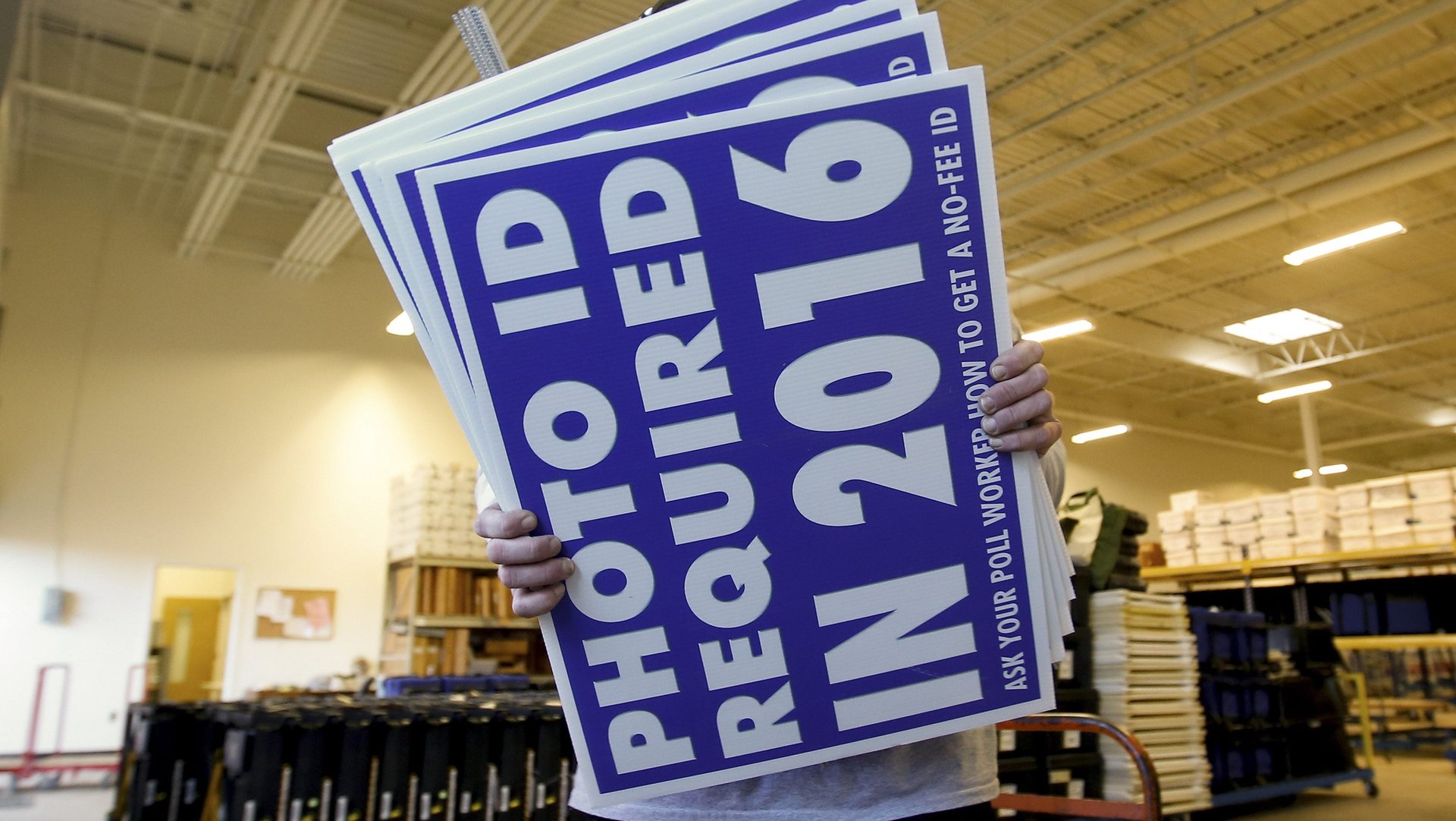The Supreme Court won’t let North Carolina use its racist voting law
A North Carolina voting law seen as racist will not be in effect during this fall’s elections following an evenly split Supreme Court decision yesterday.


A North Carolina voting law seen as racist will not be in effect during this fall’s elections following an evenly split Supreme Court decision yesterday.
The law, enacted by the state’s legislature in 2013, was partially struck down by an appeals court in July because it targeted ”African-Americans with almost surgical precision,” the court said. North Carolina protested, asking the Supreme Court to weigh in.
The top court’s four conservative justices took the state’s side, while the four liberal judges upheld the lower court’s decision. That means the request for an “emergency stay” is denied, and the state won’t be able to enforce the restrictive law in the upcoming November election. The Supreme Court normally has nine justices, but Republicans have declined consider president Obama’s nominee to replace the late Justice Antonin Scalia.
“Four liberal justices blocked North Carolina protections afforded by our sensible voter laws,” North Carolina governor Pat McRory said in a statement.
But the appeals court didn’t see the law as sensible. It took issue with the law’s voter identification requirements, its elimination of same-day registration and “pre-registration” for 16-year-olds, its reduction in the number of early voting days, and a ban on counting ballots cast in the wrong precinct.
All were said to be discriminatory: IDs required to vote, for instance, included those used disproportionately by whites (passports and drivers licenses), but not those predominantly used by black voters (college and state assistance IDs); the shorter early voting period would eliminate one of two Sundays, when black churches shuttle voters to the polls.
The 2013 North Carolina law was introduced after the Supreme Court rolled back parts of the Voting Rights Act. Other states also implemented more restrictive voting laws in recent years, and a number of them were successfully challenged.
The closer we draw near to the election, the less likely states are to have these restrictions restored. A deadlocked Supreme Court is unlikely to reverse any of those decisions, and courts are often reluctant to introduce any further confusion for voters so close to Election Day.
In North Carolina, advocates said that the ruling would allow thousands and perhaps even tens of thousands of minority voters to participate in the election rather than being disenfranchised. This is an important outcome for Democrats, who rely on the support of African-American voters, especially in a state expected to be a battleground for the presidential, Senate and governor elections.